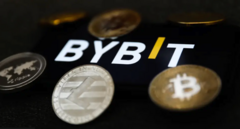Hackers believed to be affiliated with the North Korean regime, operating under the banner of the Lazarus Group, have managed to transpose at least $300 million of their unprecedented $1.5 billion cryptocurrency heist associated with the ByBit exchange into funds that are nearly impossible to recover. The hack, executed two weeks ago, has initiated a relentless effort to track and stifle the hackers’ conversion of cryptocurrencies into usable cash.
Crypto investigators at Elliptic assert that the Lazarus Group is working around the clock to obscure their money trail, showcasing a level of sophistication in crypto laundering that sets them apart from other criminal actors. Dr. Tom Robinson, co-founder of Elliptic, claims that they likely have a dedicated team employing automated technology and years of experience specifically for this purpose, operating in shifts with minimal downtime.
Elliptic supports ByBit’s assessments, which reveal that 20% of the stolen funds have already "gone dark," indicating that these assets are unlikely to ever resurface. The hacking group previously compromised one of ByBit’s suppliers, altering digital wallet addresses which unwittingly directed $401,000 Ethereum to the thieves instead of ByBit’s intended wallets.
In a bid to recover some of the stolen assets, ByBit CEO Ben Zhou has initiated the Lazarus Bounty program, an incentive-driven project designed to rally the public in tracing and freezing the stolen funds where feasible. Despite the public nature of blockchain transactions enabling possible tracking, the path to recovery remains fraught with challenges.
Currently, 20 individuals have collectively received around $4 million in rewards for identifying some $40 million of the purloined cryptocurrency, yet experts remain skeptical about the chances of reclaiming the remaining funds, given North Korea's adeptness at evasion through sophisticated laundering methods.
The scarcity of cooperative crypto exchanges poses further obstacles: the exchange eXch has been accused of not acting swiftly enough to freeze the illicitly converted funds, with over $90 million reportedly laundered through their platform. In contrast, the owner of eXch, Johann Roberts, contends that his team is collaborating in the investigation while also defending the ideals of cryptocurrency’s anonymity.
North Korea has not publicly acknowledged its involvement in the Lazarus Group, but its hacking prowess, particularly targeting cryptocurrency firms, has become increasingly evident. With a history of successful cyber-attacks, including several high-profile heists since 2019, the regime has manifested an alarming ability to exploit the relatively lower security standards in the cryptocurrency sector. The U.S. government has placed individuals associated with the Lazarus Group on its Cyber Most Wanted list, although the likelihood of their arrest remains slim as long as they remain within North Korea's borders.



















